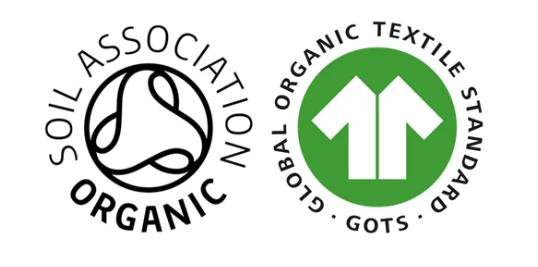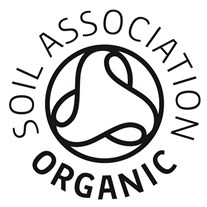- Soil Association
- Certification
- Fashion and textiles

Fashion and textiles
Fashion and Textiles Organic Certification
Find out more about the GOTS organic textiles standard and the benefits of certifying with Soil Association Certification.
Find the information you need:
Why organic textiles certification is important
Global Organic Textile Standard (GOTS) certification with Soil Association Certification ensures that at least 70 percent of the product is made up of certified organic material.
The textiles industry sees a lot of exploitation, however, GOTS is the only standard to cover environmental, social and chemical requirements throughout the supply chain.
As customer demand for transparency increases, it is important to remember that certification is the only way to guarantee chain of custody and prevent greenwashing. With the launch of Global Trace Base, the GOTS database for transparency, the entire supply chain of GOTS goods is more traceable than ever.
We encourage consumers to look for the GOTS logo when buying organic clothing, period products or to ensure that there is meaningful action behind a business’s sustainability claims.

Why GOTS is organic and more
GOTS is an established and growing standard that is widely recognised in the global textile industry.
How GOTS goes above and beyond as an organic standard:
- Verifies the organic origin of the product and covers the entire supply chain, from harvesting to manufacturing and trading, delivering credible assurance to end consumers
- Processing of goods is done in a socially responsible way in compliance with the International Labour Organisation (ILO) core labour norms and additional living wage requirements
- Ensures the protection of health, safety and rights of employees
- Follows social criteria and ethical business behaviour practices
- Supports environmental protection, as manufacturers are required to collect data on water and energy consumption (per kg of textile output)
- The Manufacturing Restricted Substance List (MRSL) only allows low impact GOTS Approved Chemical Inputs, which are free from hazardous substances
- Products are tested against harmful chemical residues to protect people making and using the products
- Products meet technical quality requirements like colourfastness and shrinkage
A variety of products can be certified to GOTS, such as garments, home textiles, mattresses, personal hygiene and period products, and food contact textile packaging.
How GOTS compares to other certifications
GOTS covers all of the organic textile certification requirements, compared to the Better Cotton Initiative (BCI) and Textile Exhange's Organic Content Standard (OCS). Here is a list of the requirements included under each certification:
BCI
- Chain of custody for supply chain traceability
- International Labour Organisation requirements met at farm level
OCS
- Chain of custody for supply chain traceability
- Organic fibres used without pesticides
GOTS
- Chain of custody for supply chain traceability
- International Labour Organisation requirements met at farm level
- Organic fibres used without pesticides
- Harmful chemicals banned in processing, reducing residues on finished goods
- Social compliance covered through supply chain to ensure fair wages and safe working conditions
- Technical quality of goods ensured
- Prohibition of controversial fibres (such as virgin polyester, mulesed wool, and asbestos)
Why choose Soil Association Certification
As a non-profit organisation, we are here to accelerate a just transition to a fairer and more sustainable world across all of the industries we work in.
Here are some of the exclusive benefits of certifying with us:
- A percentage of your fees are donated back into the Soil Association charity, find out about our work here
- Support on inspections, export and import requirements, and GOTS labelling
- Highest consumer recognition for organic in the UK market with the Soil Association organic symbol (in addition to the GOTS symbol)
- Access to our network of the UK’s leading organic brands across food, drink, beauty, wellness and textiles, with unique opportunities for learning and collaboration
- Free access to our annual industry-leading Organic Trade Conference, worth £500, as well as other exclusive events
- Free access to our industry-leading Organic Market Report and other up-to-date industry data
- Support with new routes to market, including eligibility for Amazon’s Climate Pledge Friendly badge, shown to increase sales on Amazon by an average of 10%
- Access to our exclusive client portal to help manage your certification
- FSC certification for your non-organic fibres
-
Everything you need to know about organic textiles certification
Find out more
In this section...
Apply for organic textiles certification
Get in touch to find out more about certifying
